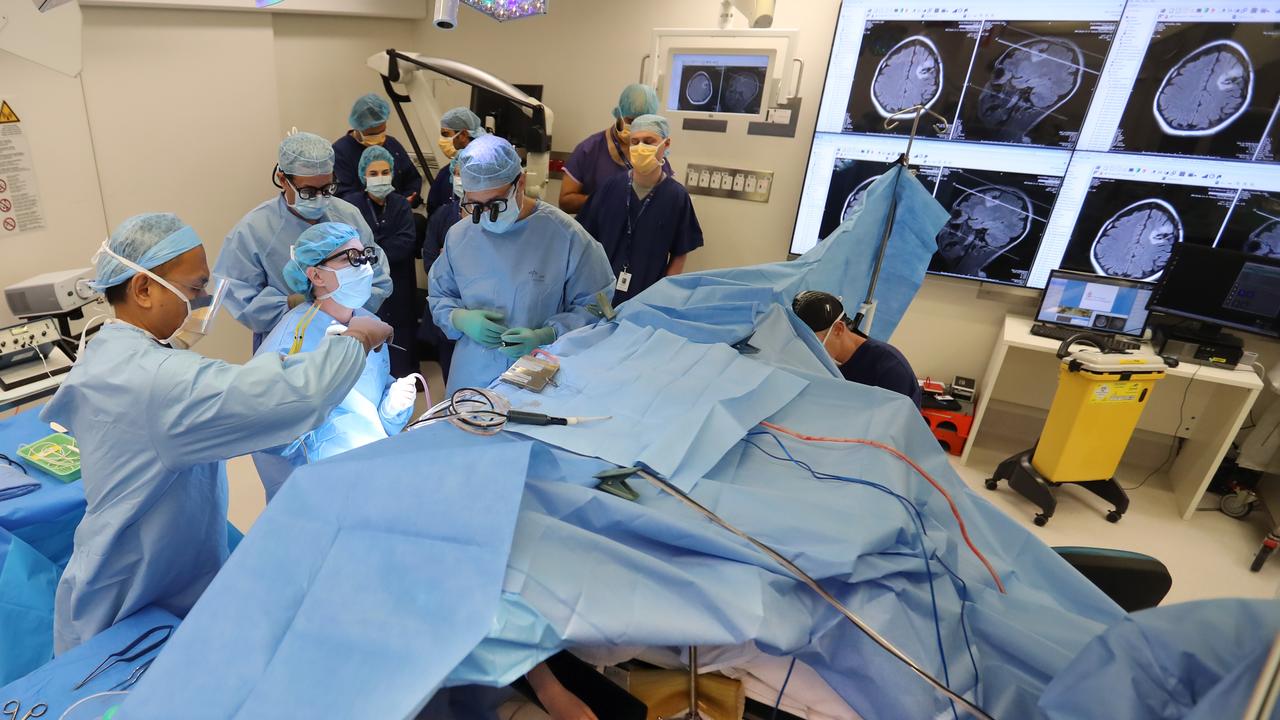Big myths Aussies believe that stop them from saving a life
IT’S a life-and-death decision every Australian needs to make, but these persistent myths have clouded our judgment.
THERE are many myths that have stopped people from donating their organs — even those who think they are already registered.
Here is the truth about who can be an organ donor, why some fears are unfounded and what you need to do to ensure your wishes are respected.
MYTH #1: You registered through your driver’s licence
Just because you ticked the box on your driver’s licence, it does not guarantee you are a registered donor. The system was changed a few years ago so, unless you live in South Australia (which is the only state that kept the system), your wishes may no longer be recorded.
Some states did migrate the details across but it’s a good idea to check what your status is. This is pretty easy if you have an online Medicare account through MyGov — just go into your Medicare account and it will show your status. If you’re not sure, just register again through donatelife.gov.au/news.
MYTH #2: I smoke and drink so no one will want my organs
Almost anyone can donate their organs and tissues. You shouldn’t assume you’re not healthy enough. Only some medical conditions may prevent you from being a donor, such as transmissible diseases like HIV.
The main barrier to donating is how you die. It needs to be in hospital and only in the case of being declared brain dead, or after circulatory death, which is when your heart and lungs stop working.
The reality is just 2 per cent of all hospital deaths happen in a way where organ donation is possible. Last year the families of just 1093 Australians were asked to consider organ donation.
The criteria is less strict for eye and tissue donations because they can be donated up to 24 hours after death, regardless of where you die.
REGISTER: To become a registered organ donor, click here

MYTH #3: I’m too old
There is no age cut-off although certain organs, such as a heart, won’t be used if someone is quite elderly.
“You can donate your kidney, even if you’re 80,” Organ and Tissue Authority national medical director Dr Helen Opdam told news.com.au.
“It depends on a person’s health. You can have a 70-year-old who is extremely healthy and sometimes a 50-year-old who is less healthy.”
There have been people in their 70s and 80s who have donated kidneys, liver or lungs.
“Don’t rule yourself out,” Dr Opdam said. “If you die in circumstances where donation is possible — the suitability of what can be donated will be determined then.”
MYTH #4: Doctors won’t work as hard to save my life if they know I’m a donor
The first duty of medical staff is to save your life. Organ and tissue donation will only be considered if death has been declared or is inevitable.
Your heart must stop beating or you must be declared brain dead, which happens when blood circulation to the brain ceases and it stops functioning. It is different to being in a coma. Two doctors must verify this in an intensive care unit in hospital.

MYTH #5: It’s against my religion
Actually most religions support organ donation including Catholicism, Islam, Jehovah’s Witness, Judaism, Greek Orthodox, Presbyterian, Seventh Day Adventist, Buddhist and the Uniting Church. If you’re not sure, speak to your religious adviser.
MYTH #6: My family won’t be able to view my body
The donation of organs and tissues does not alter the physical appearance of the body. Your family will still be able to view your body and have an open casket if they wish.
MYTH #7: I don’t want my organs and tissues to be used for medical research
Donated tissues and organs will never be used for medical research unless there is written permission from your family.
MYTH #8: People only need organs because of bad lifestyle choices
Many people have inherited genetic conditions such as cystic fibrosis, cardiomyopathy and biliary atresia. Without a transplant these illnesses will kill them, often at an early age.
Corneal transplants can give people back their eyesight after disease or damage. Heart valves can also be used to repair congenital defects in young children.
MYTH #9: I can’t be bothered
It only takes one minute to sign up to Australian Organ Donor Register. All you need is your Medicare card number.
MYTH #10: I don’t need to talk to anyone about my wishes
It’s important to register but you also need speak with your family in order to ensure your wishes are respected. Donation won’t go ahead unless your family agrees, even if you are a registered donor.
About 10 per cent of families refuse to let a donation happen even if someone had registered. This may be because they are unsure of how their loved one really felt.
News.com.au is supporting organ donation during DonateLife Week, click here to read more




